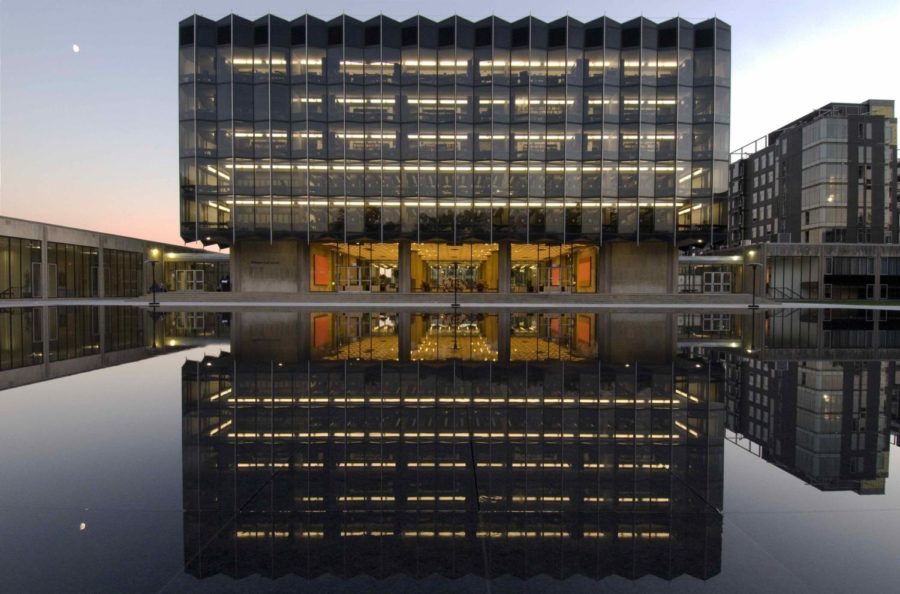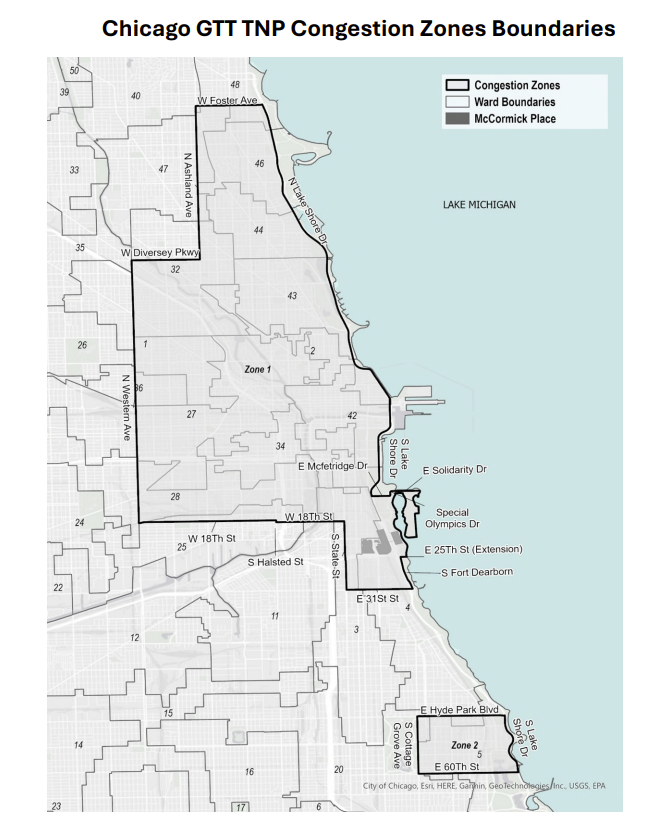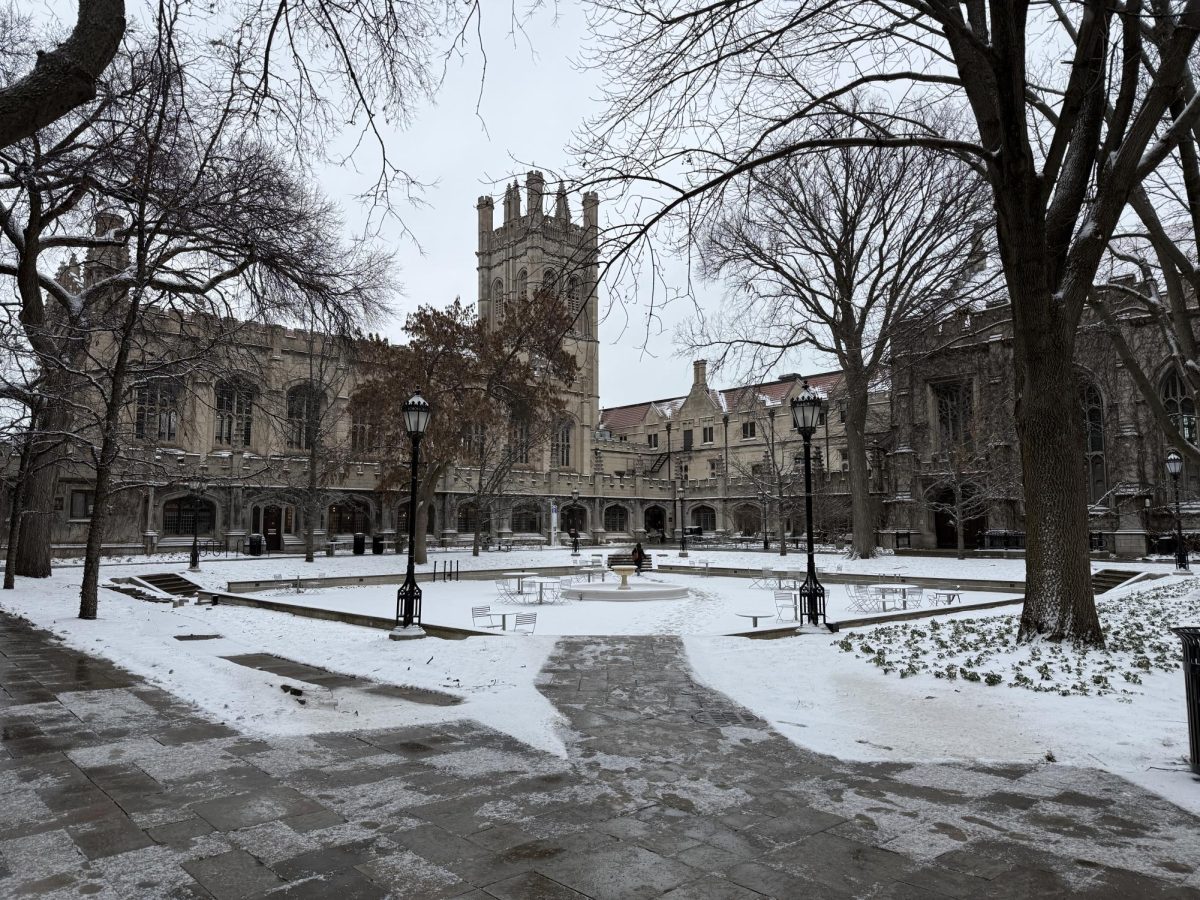University of Chicago Law School graduate Jeffrey Peck (J.D. ’82) was among President Joe Biden’s twelve appointees to the United States Holocaust Memorial Council (USHMC). Established by Congress in 1980, the USHMC serves as the governing board of the United States Holocaust Memorial Museum, working to commemorate the victims of the Holocaust and raise awareness of antisemitism and genocide in the United States and worldwide.
In 1987, Peck served as special counsel to the 1987 Senate Judiciary Committee, of which Biden was the chair, for the nomination of Robert Bork to the Supreme Court. From 1988 to 1992, Peck continued to work for Biden as general counsel and staff director. Peck also served as treasurer and vice chair of the Biden Foundation and as a volunteer senior advisor to the Biden Presidential Transition. Between 2007 and 2018, he was chairman of the government relations firm the Tiber Creek Group.
In an interview with The Maroon, Peck shared that his time at the Law School helped cultivate his analytic thinking, which has served him well in his career. “The University of Chicago, with its—as a student very painful, but over your career very helpful—focus on the Socratic method, [helps you] learn to question your own thinking and to question other people’s arguments.”
While working for the Senate Judiciary Committee, one of Peck’s proudest professional accomplishments was “educating the members of the Senate Judiciary committee, the full Senate, and the American public about the dangers of Robert Bork’s jurisprudence.”
A strict originalist, Robert Bork spoke against the passage of the landmark Civil Rights Act of 1964, arguing that the Fourteenth Amendment did not extend to the prevention of sex discrimination, and that the Constitution did not grant a right to privacy.
“If you look at various court decisions—particularly the protection of gay rights and gay marriage in the Obergefell case—that all originates from substantive protections for the right to privacy of individuals in this country,” Peck said. “The preservation of those rights is a reflection of the fact that Robert Bork was not confirmed to be on the Supreme Court, and Anthony Kennedy was.”
Peck believes that his work at the Senate Judiciary Committee is highly relevant to the work he hopes to carry out with the USHMC. “I think much of our focus during the hearings on the Bork nomination were on civil liberties and civil rights, [and] due process under the Fifth and Fourteenth Amendments of the Constitution…which are all essential pillars for the preservation of individual rights and the protection of minorities.”
“Obviously, there were no such protections during the Holocaust…. [Therefore] the mission of the Holocaust Museum is to continue to educate all generations of Americans, but particularly younger generations of Americans that don’t have any direct experience or memory of the Holocaust, and also the prevention of genocide, all of which relate to the preservation of individual rights and liberties,” Peck said.
Elaborating on the importance of educating the public, Peck said that the Museum seeks to help the public understand what happened in Nazi Germany: how ordinary people were led to do terrible things in support of the Nazis. He also explained that part of the Museum’s mission is preventing genocide globally and informing the public about issues of genocide. “The Museum put out a report on the genocide of the Uyghurs in China. It doesn’t involve members of the Jewish community like the Holocaust did, but it does involve genocide, which continues to occur in various different parts of the world.”
Peck later spoke about antisemitism and the significance of Holocaust remembrance more than seventy years after the end of World War II. Peck said, “I would make the case that [Holocaust remembrance is] even more important today…. Antisemitism is on the rise. We see examples like in Texas recently. Even in Washington [D.C.], someone vandalized Union Station with Swastikas. People who don’t know about the Holocaust or who have this romanticized image of the Nazis are more inclined to be led down a path of antisemitism.”
He also discussed the role of the USHMC in preventing antisemitism: “The Museum is a critical means by which we remember the terrible, terrible genocide that occurred in Nazi Germany and throughout Europe in the 1940s. One is destined to relive history if one doesn’t learn from it, and so it’s absolutely essential to have this sort of memorial, not just in stone, [but] studying genocide around the world, taking steps to prevent it.”
The USHMC, Peck said, “has a really important mission to prevent disinformation and misinformation about antisemitism. More people [need to] understand the history of what transpired during the Holocaust: how Jews were transported to camps and murdered on a large scale. We need to make sure people understand that this happened before and it could happen again.”
Peck believes that American antisemitism has been driven in large part by a lack of education, and he warns of the threat posed by efforts to rewrite history. “You see what’s happening today with ‘critical race theory,’ and how that’s been misinterpreted. You see how there are efforts on the far right to wipe away history regarding racism in this country and you see the banning of books.”
“We saw these sorts of things when the Nazis began their rise in Germany. The parallels should not be overlooked or ignored: There are revisionists on the right who are trying to rewrite our history…and it’s only a short step to saying we shouldn’t be teaching about the Holocaust and how antisemitism continues.”
Peck concluded by saying that many young people are uninformed about the Holocaust due to the limited number of living survivors. “Time marches on,” he said. “As Holocaust survivors pass [away], you lose memory of that direct personal experience…. That's why it’s so important to preserve that experience in video and oral history.”








